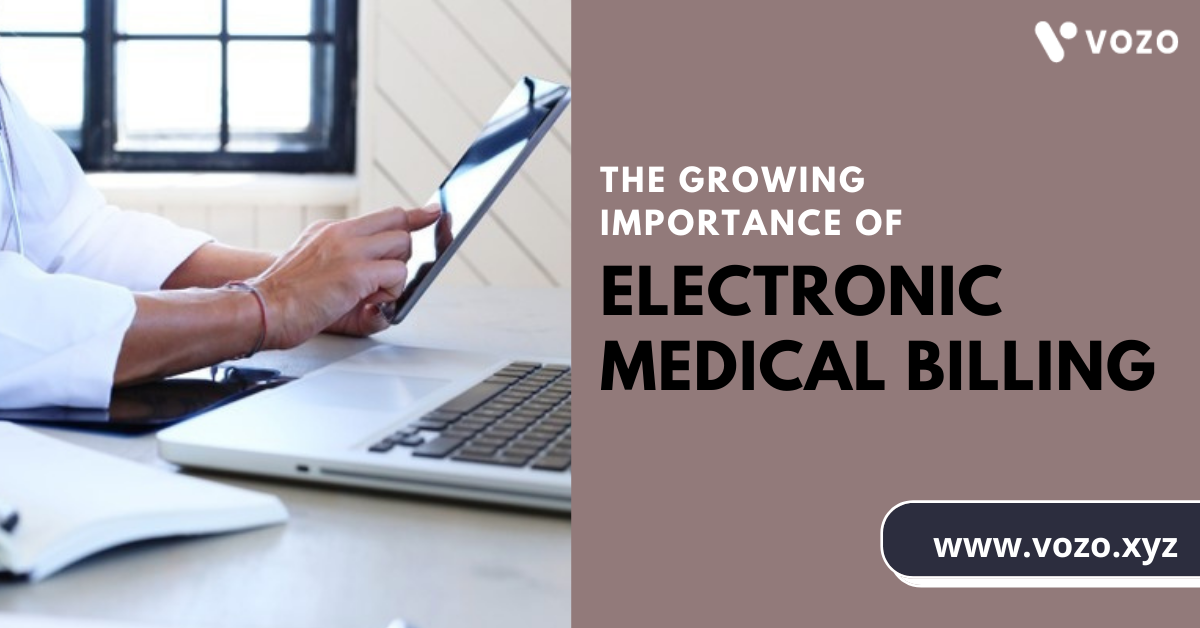Growing Importance Of Electronic Medical Billing
Today, most healthcare organizations are facing huge challenges in maintaining financial viability due to the impact of the COVID-19 pandemic. As per the report, the administrative expenses range up to nearly $360 billion annually for U.S healthcare practices, government health agencies, and insurers. Among these, the medical billing relation functions make up a large part of those expenses.
The importance of the electronic medical billing process proved to be beneficial by reducing cost, saving administrative time, and thereby improving overall patient satisfaction. Discover some of the valuable benefits of electronic medical billing.
Traditional Vs Electronic Billing Software
The medical record errors and the long reimbursement process are considered to be the top challenges with the traditional medical billing process. Today, the traditional method was quickly overtaken by electronic claim submissions and billing. Many health practices, hospitals, and others have made the transition to this digital billing system.
The digital billing system not just only benefits healthcare practices and medical offices, but also the third party medical billing organizations are also shifting towards digital to speed up the revenue cycle management process and to increase patient payments.
The electronic billing software helps in performing various tasks like appointment scheduling, accounting & reporting, and some others are listed as follows:
- Digital medical billing software dispenses with the need of storing and managing a huge set of data in a printed format.
- The electronic medical billing system follows an automatic cycle as the information is recorded in the EMR and is consequently connected up with the billing system.
- Takes out repetition and rapidly scatters the data to the necessary modules of EMR.
- It is cost-effective when compared to paper billing, as it requires less staff to handle the billing tasks and less space.
- It is cost-effective when compared to traditional billing as it requires less staff to deal with the billing works and less space.
- Electronic billing software saves time for clinical experts which can be spent on staying up with the latest with changing clinical laws, rules, and guidelines related to patients’ insurance.
- Digitized bills and reports are precise and permit customizable patient medical data which includes medical history, personal data, insurance policy, and other information.
- Electronic medical billing solutions offer patients an advanced method to talk about their clinical expenses with a specialist who can clarify their charges and provide advice on paying their medical bills.
A lot of pressure is being placed on the medical billing companies to achieve successful results, they need to find effective ways to collect patient encounters and turn them into claims with a correct medical diagnosis.
RELATED: How To Overcome Medical Billing Challenges In 2021?
What Is Electronic Medical Billing?
Electronic Medical Billing is defined as the process of submitting and following up on claims electronically with the health insurance firm to receive correct payments for the services offered by the healthcare providers.
Benefits Of Electronic Medical Billing System
1. Paperless & Hassle-Free Management: Lowering costs and reducing revenue cycle times between patient care and payment are the most widely-touted benefits of adopting electronic medical billing. Electronic medical billing can lead to other practice benefits as well — especially when integrating electronic medical billing with electronic medical records and other digital initiatives.
2. Lower Administrative Costs: Migrating to digital billing reduces stationery and postage costs and eliminates storage requirements for paper bills. It also requires fewer medical office staff who no longer need to print and mail manual invoices and follow-up notices.
3. Improved Patient Satisfaction: No patient likes to receive a bill but with the rise in patient financial responsibility, patients expect to pay at least a portion of their medical expenses. Patients also expect this experience to be not only digital, but mobile, and providing this process digitally can enhance the experience and improve patient satisfaction
4. EHR Integration: An electronic billing event automatically updates the patient’s electronic medical record, reducing redundant data entry and creating a single, comprehensive patient profile.
5. Reduced Medical Coding Errors: Patient data from electronic medical records can be shared with billing systems, enabling practitioners to generate more accurate claims to insurers. This data sharing also eliminates human errors associated with re-entering charges from billing sheets and entering incorrect codes.
6. Better Communication: Electronic billing allows healthcare providers to communicate more proactively, and patients can receive their bills on their smartphones, tablets, or laptops. Many electronic billing solutions also provide customers the means to pay with a single click.
7. Real-Time Claim Status: Many billers utilize third-party clearinghouses to process electronic claims. Most software vendors have partnered with a clearinghouse to offer a seamless hand-off. As a bonus, software vendors have added real-time status updates on claims directly into the software, allowing billers to quickly check-in on their claims and report back to their clients. Confirm there are no clearinghouse fees added.
Final Thoughts
The healthcare environment is emerging towards addressing the new medical challenges and changing patient expectations. When combined with digital patient records, electronic medical billing can ultimately improve healthcare practice productivity while also improving patient satisfaction.
For the healthcare providers who are planning for the transition towards a digital billing system, Vozo medical billing software will help you in improving practice cash flow and reduce the risk of medical billing and coding errors.
About the author

With more than 4 years of experience in the dynamic healthcare technology landscape, Sid specializes in crafting compelling content on topics including EHR/EMR, patient portals, healthcare automation, remote patient monitoring, and health information exchange. His expertise lies in translating cutting-edge innovations and intricate topics into engaging narratives that resonate with diverse audiences.














